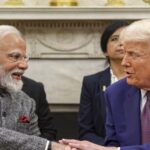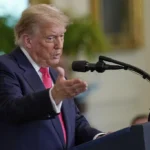
- Israeli Prime Minister Benjamin Netanyahu addressed the UN, emphasizing Israel’s ongoing fight against Hezbollah and its vision for peace in the Middle East.
- Netanyahu rejected ceasefire efforts and criticized global hypocrisy towards Israel, vowing to continue military operations until the country’s security goals are met.
- The Israeli leader pointed to the Abraham Accords as a model for future peace, expressing optimism about a potential agreement with Saudi Arabia.
Why Does Israel Reject a Ceasefire with Hezbollah?
In his powerful speech at the United Nations General Assembly (UNGA), Israeli Prime Minister Benjamin Netanyahu made it clear that Israel will not pause its military actions against Hezbollah. With ongoing tensions in the region, Netanyahu argued that Israel has the right to defend itself and will continue its operations until the threat from Hezbollah is fully neutralized. But why is Israel so determined to maintain this course of action?
Netanyahu emphasized that Israel seeks peace, but it must first ensure the safety of its citizens. The prime minister explained that Hezbollah has been launching attacks from civilian areas in Lebanon, endangering innocent lives. He stressed that Israel is not at war with the Lebanese people but with Hezbollah, which he accused of “hijacking” the country and using civilian locations as cover for its militant operations.
What Else Did Netanyahu Address in His Speech?
In addition to discussing the conflict with Hezbollah, Netanyahu touched upon several other key issues. He issued a strong warning to Iran, declaring that Israel would retaliate if attacked, and called for the reimposition of sanctions to prevent Iran from acquiring nuclear weapons. Netanyahu made it clear that Israel’s defense capabilities extend across the entire Middle East and beyond.
The Israeli prime minister also expressed optimism about the potential for future peace in the region. He referred to the historic Abraham Accords, which normalized relations between Israel and the United Arab Emirates, as a model for future agreements. Netanyahu hinted at the possibility of a peace deal with Saudi Arabia, which he believes would strengthen both countries’ economies and security.
Conclusion: Israel’s Path Forward in a Complex Region
Netanyahu’s speech at the UN showcased Israel’s dual focus: defending itself against immediate threats while seeking long-term peace in the Middle East. He strongly criticized the United Nations for what he described as hypocrisy and double standards, stating that the organization’s treatment of Israel goes beyond criticism of Gaza—it questions Israel’s very existence. Despite these challenges, Netanyahu remains confident that Israel will emerge victorious in its ongoing battles, both on the military and diplomatic fronts.
As the situation intensifies, with Israel continuing its strikes on Hezbollah strongholds, the world watches closely. Netanyahu’s words reaffirm Israel’s commitment to both securing its borders and seeking peace, though the road ahead remains fraught with conflict and uncertainty.




































Leave a Reply